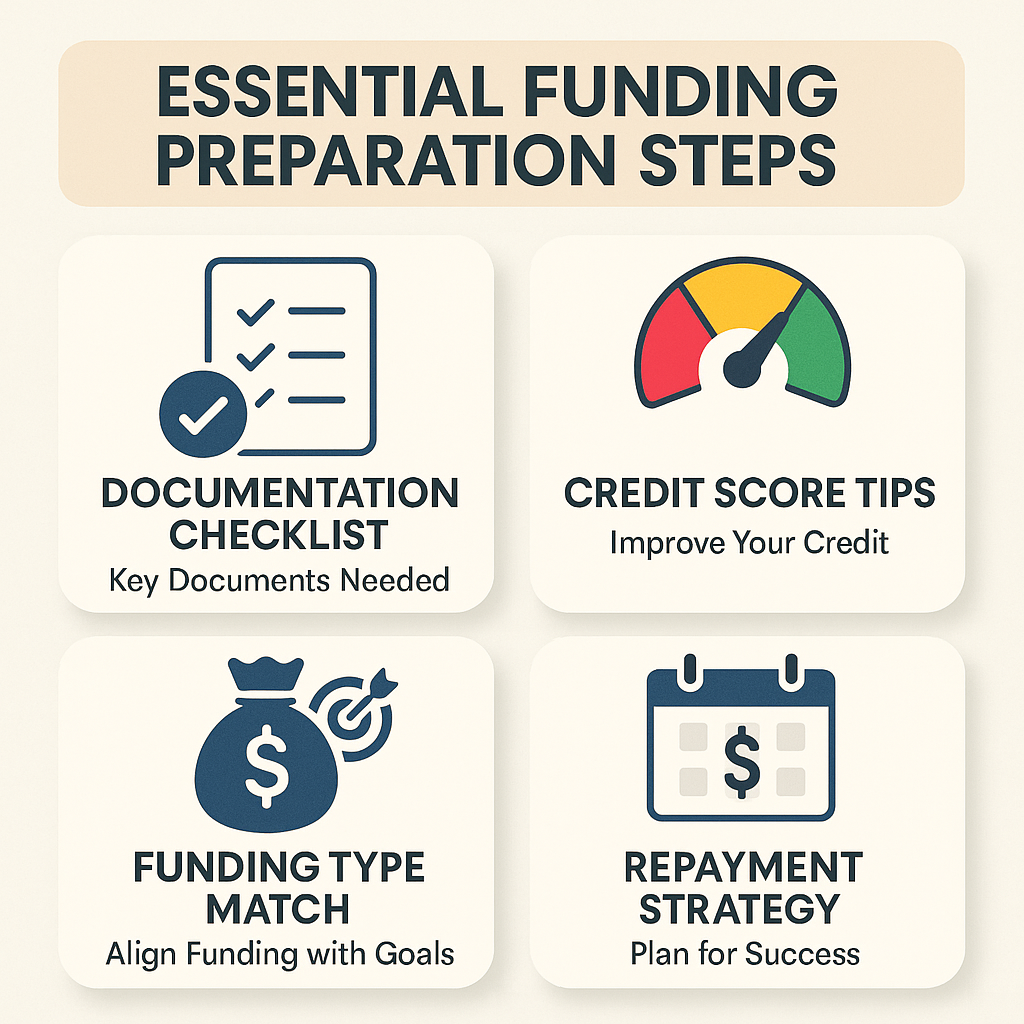What to Avoid When Applying for Business Funding
Securing business funding can feel like navigating a maze, especially when you're unsure of the pitfalls ahead. Many business owners unknowingly make critical mistakes that could derail their funding applications or lead to unfavorable terms. Understanding what to avoid when applying for business funding is essential for improving your chances of approval and securing the best possible financing options.
From missing documentation to poor credit preparation, these common missteps can cost you valuable time and money. The good news? Most of these mistakes are entirely preventable with proper planning and awareness. Let's explore the key areas where businesses typically stumble and how you can sidestep these obstacles.
Documentation Preparation Checklist

Missing documentation preparation often becomes the first roadblock in the funding process. Lenders typically require comprehensive financial records to assess your business's creditworthiness and repayment capacity.
- Financial statements: Ensure you have complete profit and loss statements, balance sheets, and cash flow statements for at least two years
- Tax returns: Gather both personal and business tax returns, as lenders often review both to understand your complete financial picture
- Bank statements: Compile recent bank statements that demonstrate consistent cash flow and responsible financial management
- Legal documents: Include business licenses, articles of incorporation, and any relevant contracts or agreements
- Business plan: Develop a comprehensive plan that outlines your business model, market analysis, and growth projections
Credit Score Management Essentials
Poor credit preparation can significantly impact your funding options and terms. Both personal and business credit scores play crucial roles in determining your eligibility and interest rates.
- Monitor regularly: Check your personal and business credit reports frequently to identify and address any discrepancies or negative marks
- Pay down existing debt: Reduce credit utilization ratios on both personal and business accounts to improve your overall credit profile
- Establish business credit: Build a separate business credit history by opening business accounts and making timely payments
- Address issues early: Resolve any outstanding collections, liens, or judgments well before applying for funding
Funding Type Selection Guidelines
Choosing the wrong funding product can strain your business operations and create unnecessary financial pressure. Different funding options serve different business needs and cash flow patterns.
- Match funding to purpose: Align your funding choice with specific business goals, whether it's equipment purchase, working capital, or expansion
- Consider repayment structure: Evaluate whether daily, weekly, or monthly payments work best with your cash flow cycles
- Assess total cost: Look beyond interest rates to understand all fees, charges, and the total cost of capital
- Review flexibility: Consider funding options that offer prepayment benefits or seasonal payment adjustments if applicable to your business
Steps to Determine Your Funding Needs
Overborrowing can create unnecessary debt burdens, while borrowing too little might not solve your business challenges. Here's how to calculate the right funding amount:
- Analyze your specific needs: Clearly define what you need the funding for and calculate exact costs, including any contingency amounts
- Project cash flow impact: Model how the funding will affect your monthly cash flow and ensure you can comfortably handle repayments
- Consider seasonal fluctuations: Factor in your business's seasonal patterns and how they might affect your ability to make payments
- Plan for growth scenarios: Determine if the funding amount supports your growth plans without overextending your financial capacity
Building a Comprehensive Repayment Strategy
Unclear repayment plans often signal poor financial planning to lenders and can lead to cash flow problems down the road. A solid repayment strategy demonstrates your understanding of the funding's impact on your business.
- Create detailed projections: Develop month-by-month cash flow projections that show exactly how you'll handle repayments alongside regular expenses
- Identify revenue sources: Clearly outline which revenue streams will support your repayments and have backup plans if primary sources fluctuate
- Build in buffer periods: Account for slower periods or unexpected expenses by maintaining adequate cash reserves
- Monitor and adjust: Establish systems to track your repayment capacity and make adjustments if business conditions change
Key Takeaways for Funding Success
Successfully navigating the business funding landscape requires careful preparation and strategic thinking. The most successful applicants understand that funding isn't just about getting approved, it's about securing the right financing that supports long-term business growth. By avoiding these common mistakes and focusing on thorough preparation, you'll position your business for funding success and build stronger relationships with potential lenders. Remember, the time invested in proper preparation typically pays dividends in better terms and smoother approval processes.
Understanding what to avoid when applying for business funding can make the difference between approval and rejection, between favorable terms and costly mistakes. The key lies in thorough preparation, honest assessment of your needs, and careful selection of the right funding partner.
Take time to organize your documentation, understand your credit position, and clearly define your funding requirements. When you approach the funding process with this level of preparation, you're not just avoiding common pitfalls, you're positioning your business for long-term financial success.

.png)






